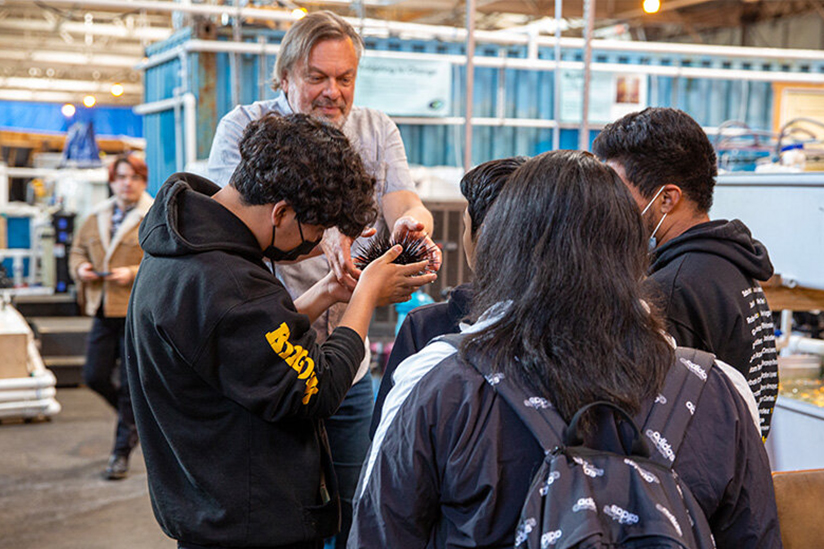Learning about the blue economy and aquatic farming enables students from King/Drew Magnet High School of Medicine and Science, some of whom have never visited the ocean or a lab, to see science career possibilities.
Students from King/Drew Magnet High School of Medicine and Science in South Los Angeles recently gained firsthand knowledge of aquaculture and the blue economy in a state-of-the-art USC lab.
- The blue economy centers on using ocean resources for economic growth and job creation by producing biofuels, sustainable food sources and biotechnology products.
- Aquaculture — farming of aquatic organisms such as shellfish and seaweed — is a significant component of the blue economy.
In his words: “The blue economy is a way of changing how we look at using resources and shifting into using the ocean in a more beneficial way,” said Justin Gaffney, PhD candidate in marine and environmental biology at the USC Dornsife College of Letters, Arts and Sciences.
What happened: 45 King/Drew High School students visited the Nuzhdin Aquaculture Lab — a 6,000-square-foot facility in nearby San Pedro — on Feb. 9.
- Sergey Nuzhdin, professor of biological sciences at USC Dornsife, heads the lab.
- Nuzhdin and the nonprofit AltaSea, where the lab resides, hosted the students.
Why it matters: Nuzhdin says visiting his lab provides high school and community college students a valuable opportunity to get an up-close view and hands-on experience of research and experiments in aquaculture.
- Nuzhdin explained: “The blue economy means jobs for these students. It’s important to expose them to biology and ensure they see the potential of a career in this field.”
- Scott Applebaum, associate professor (teaching) of environmental studies at USC Dornsife, emphasized the importance of the hands-on learning experience students get when visiting the lab: “It’s important for students to put their hands in the tanks, learn how to do advanced genomics, learn how to do physiology, and how to work with producers.”
- Alta Sea’s Education Program Manager Allan Hill explained, “If we want to achieve some of the climate goals by 2030, we need to educate high school students about what we’re doing.”
